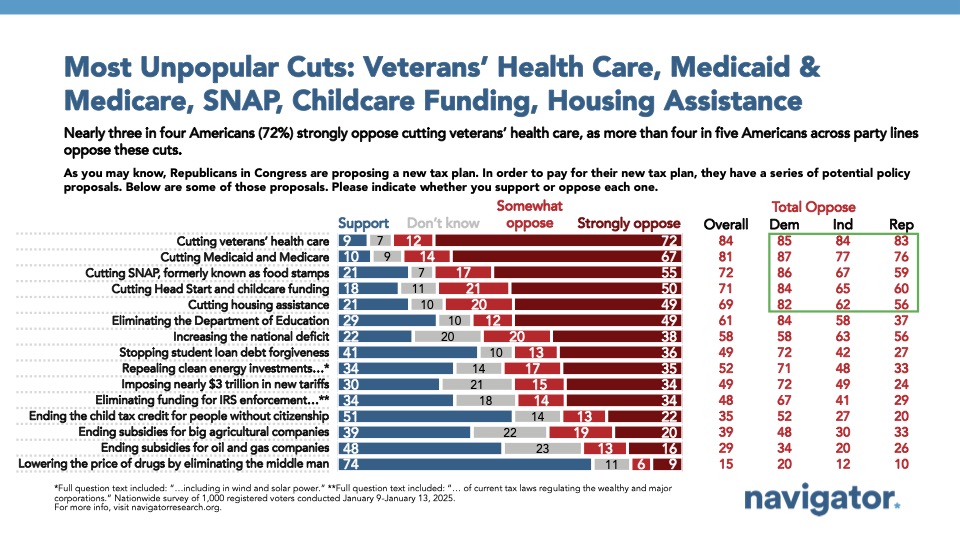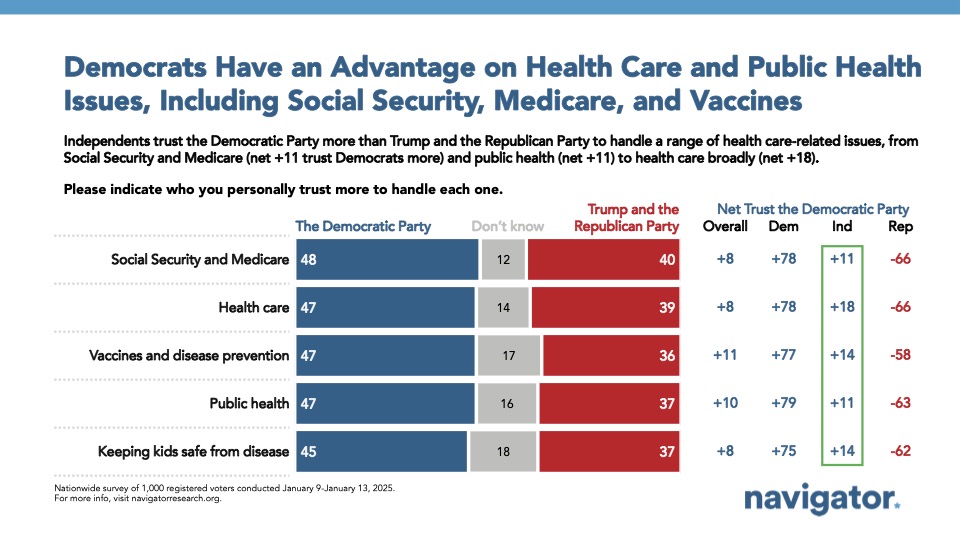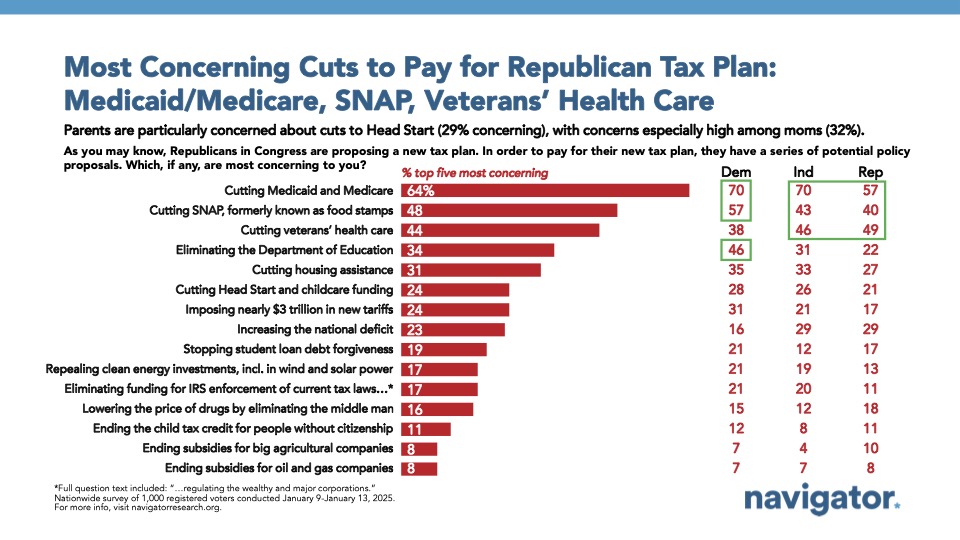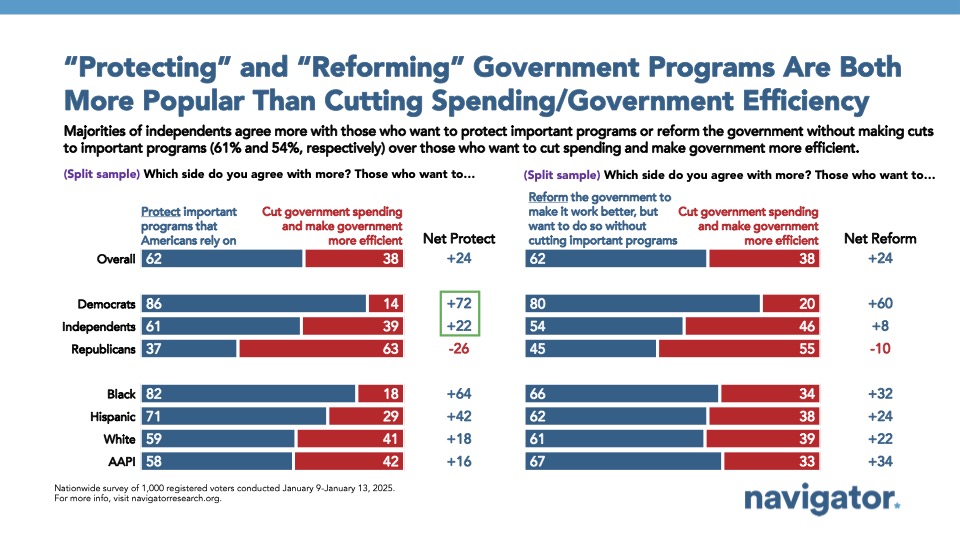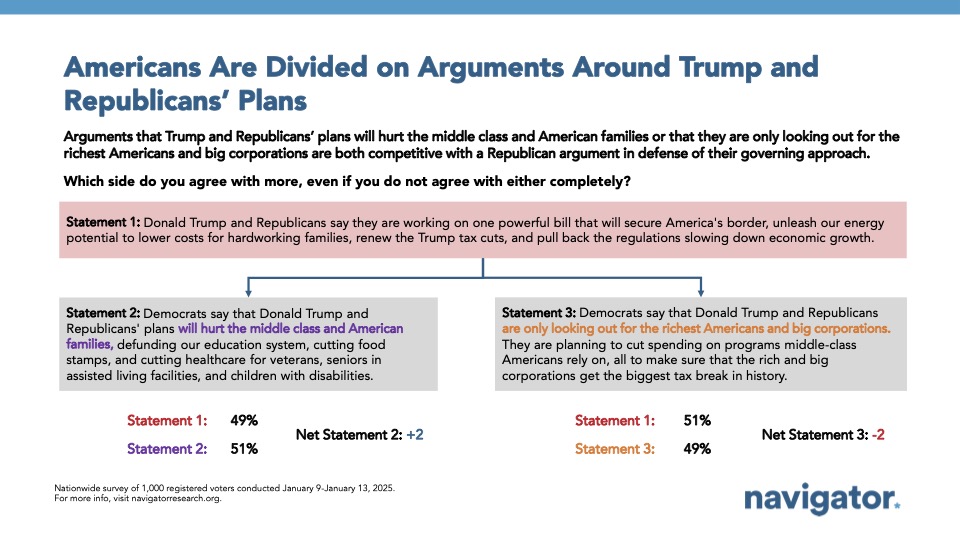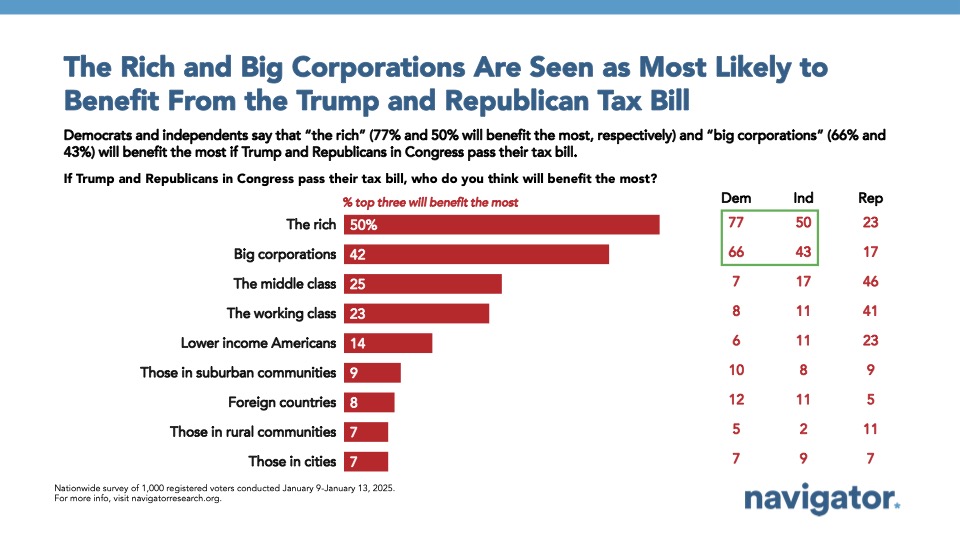Poll: Public Health Care Programs
This Navigator Research report contains data from a survey on the latest perceptions of public health and health care programs, including Social Security and Medicare, as well as perceptions of a tax plan that would cut these programs, and who Americans see as most likely to benefit from Republicans in Congress’ tax plan.
A majority of Americans express overwhelming favorability towards Social Security, Medicare, and Medicaid.
Making cuts to Medicare and Medicaid, pausing infectious disease research, and revoking FDA approval of vaccines are broadly unpopular. Among a list of policies related to public health and health care, more than two in three oppose cutting Medicare (85 percent) and cutting Medicaid (81 percent), stopping research into infectious diseases for several years (77 percent), and revoking FDA approval of childhood vaccines, like those for the measles, mumps, and rubella (68 percent oppose).
- Proposals around removing restrictions on raw milk and fluoride from public water draw a more partisan response: a plurality of Americans oppose removing restrictions on raw milk (net -24; 24 percent support – 48 percent oppose), though 28 percent say they are unsure. Similarly Americans oppose removing fluoride from public water by 4 points (36 percent support – 40 percent oppose), with 24 percent who say they are unsure. Republicans are supportive of removing fluoride from public water (net +29; 52 percent support – 23 percent oppose), but are more divided on removing restrictions on raw milk (net -3; 34 percent support – 37 percent oppose).
Americans trust Democrats in Congress more than Republicans to handle issues regarding health care.
By a 10-point margin Americans trust Democrats in Congress more to handle public health issues over Republicans. 47 percent of Americans trust Democrats to handle public health issues, while 37 percent trust Trump and Republicans. A plurality of Americans trust Democrats more to handle vaccine and disease prevention (net +10; 47 percent trust Democrats – 37 percent trust Trump/Republicans) and keep kids safe from disease (net +8; 45 percent trust the Democrats – 37 percent trust Trump/Republicans). Americans also trust Democrats to handle Social Security and Medicare (48 percent trust Democrats – 40 percent trust Trump/Republicans), including two in five independents (net +11; 41 percent Democrats – 30 percent Trump/Republicans).
- Americans are divided on whether healthcare will improve or get worse during the incoming Trump administration, with a third of Americans saying they think it will get better (31 percent), 39 percent saying they think it will get worse, and 29 percent saying they think it will stay the same.
Proposals to cut health care policies in order to pay for the Republican tax plan are deeply unpopular.
Four in five Americans oppose cuts to Medicaid and Medicare (81 percent) in order to pay for the Republican tax plan, including 87 percent of Democrats, 76 percent of Republicans, and 77 percent of independents. Similarly, a majority of Americans oppose cuts to veterans healthcare (84 percent), including 83 percent of Republicans and 84 percent of independents. A majority of Americans across partisanship view Social Security, Medicare and Medicaid favorably (79 percent), including nearly nine in ten Democrats (88 percent), four in five independents (78 percent), and seven in ten Republicans (70 percent).
- When presented with a list of proposed policies that go along with the Republican tax plan, a majority of Americans are most concerned that it will lead to cuts to Medicaid and Medicare (64 percent) and 44 percent of Americans are concerned that it will lead to cuts to veterans healthcare, including about half of Republicans (49 percent).
- By a 24-point margin, Americans agree more with those who want to protect important programs that Americans rely on (62 percent) or with those who want to reform the government to make it work better, but want to do so without cutting important programs (62 percent) over those who want to cut government spending and make government more efficient (38 percent).
- 50 percent of Americans, including 77 percent of Democrats, 50 percent of independents and a quarter of Republicans (23 percent) think that “the rich” will benefit the most if Donald Trump and Republicans in Congress are able to pass their tax bill.
Read More
About The Study
Respondents were verified against a voter file and special care was taken to ensure the demographic composition of our sample matched that of the national registered voter population across a variety of demographic variables. The margin of error for the full sample at the 95 percent level of confidence is +/- 3.1 percentage points. The margin of error for subgroups varies and is higher.


